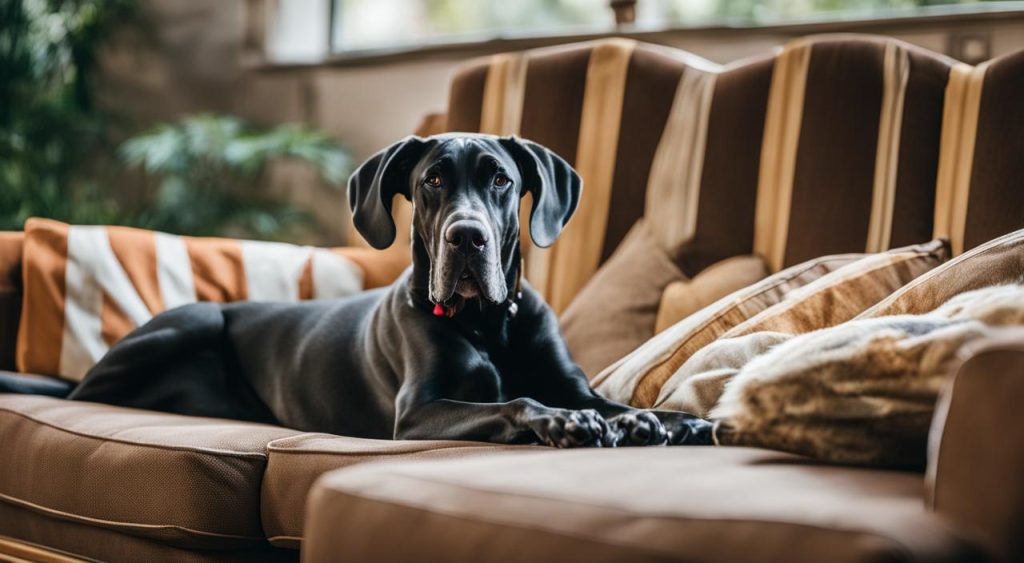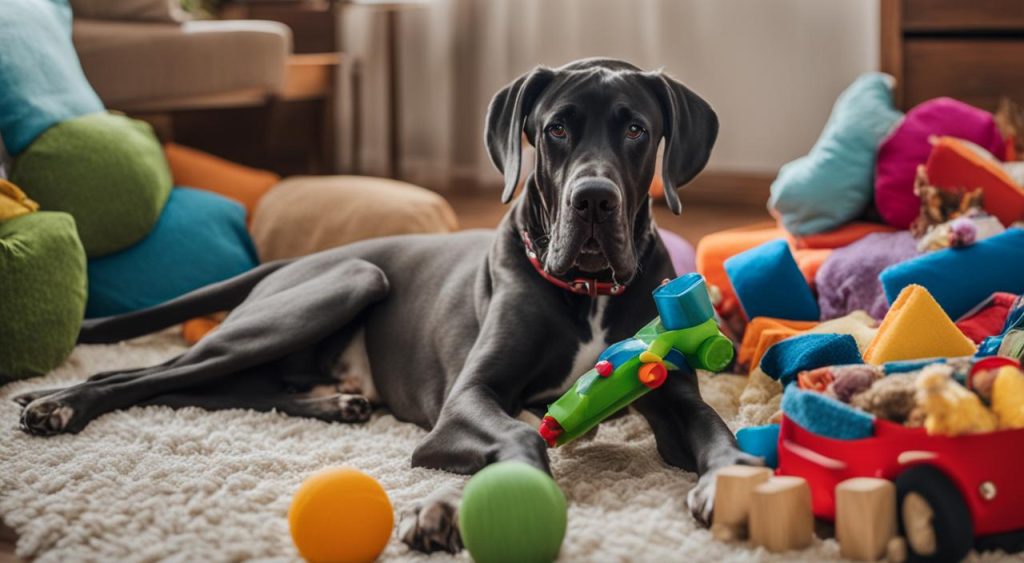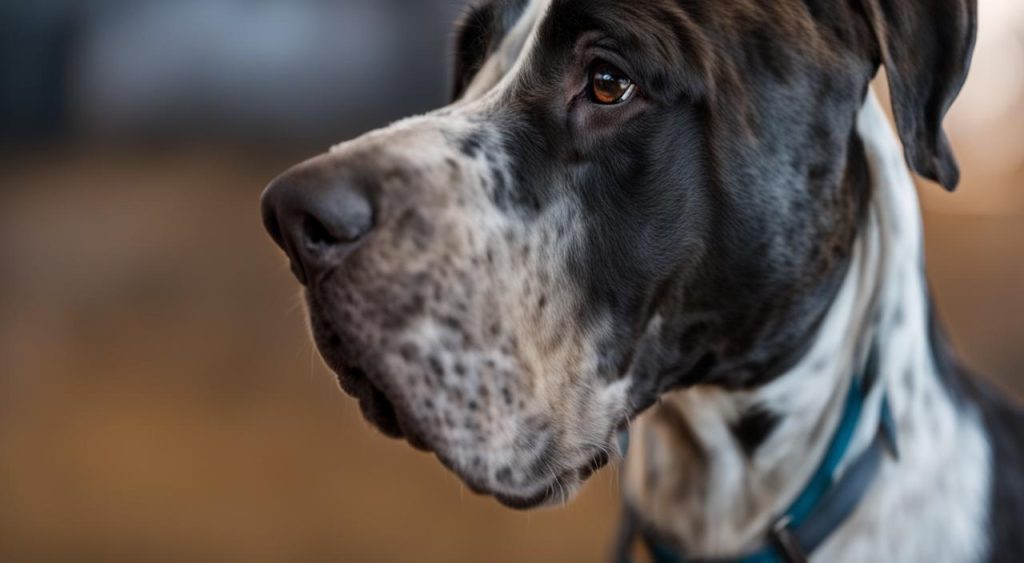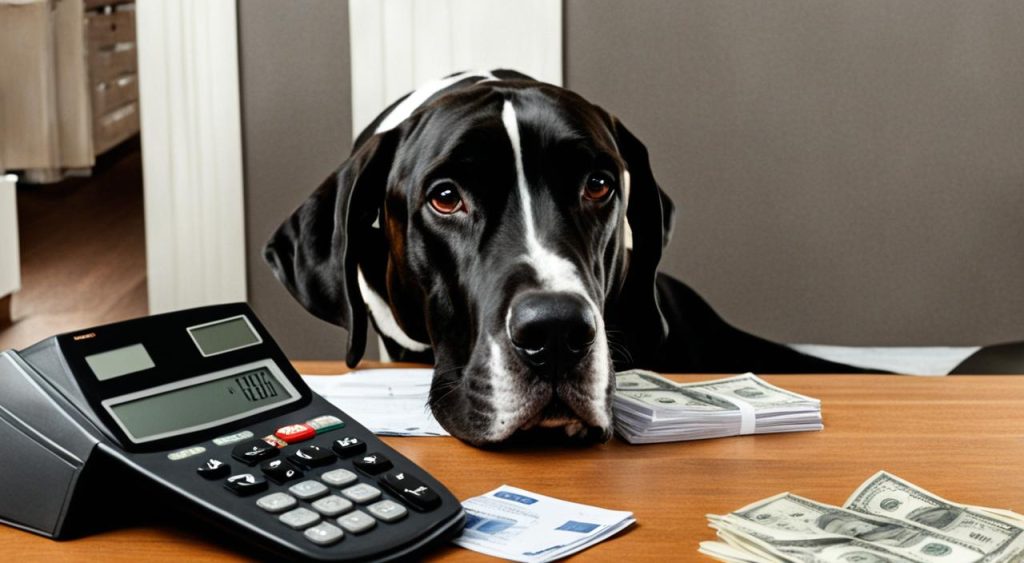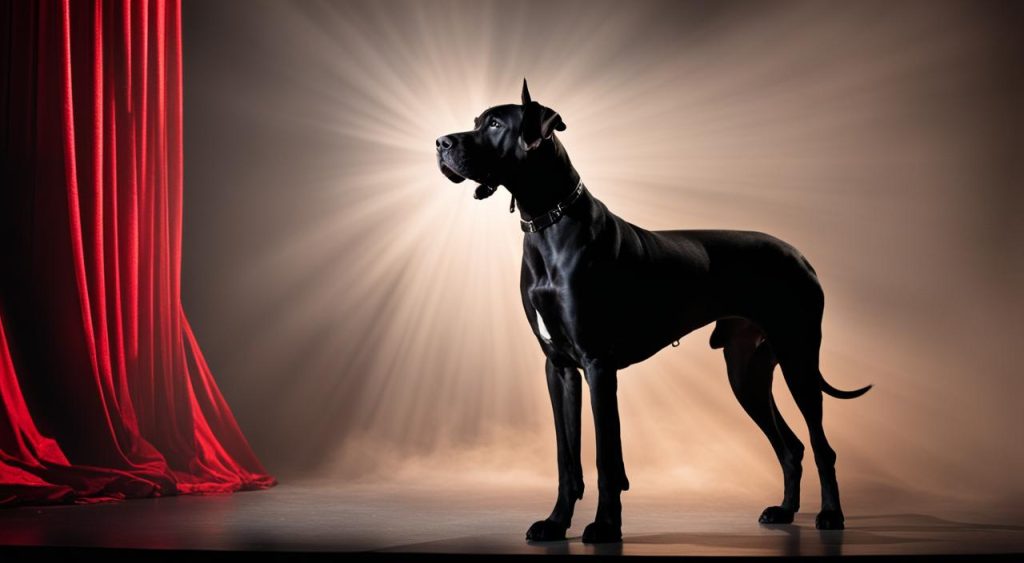When it comes to Great Danes, one question that often arises is whether they are active or lazy. These gentle giants are known for their laid-back nature and can often be found snoozing for 16-18 hours a day. Compared to smaller dog breeds, Great Danes have lower energy levels and do not require excessive exercise. This makes them a suitable choice for individuals who may not have a large space for them to roam.
Although Great Danes have a reputation for laziness, it is important to note that they do have moments of energy. You may occasionally witness their entertaining “zoomies,” which involve sprinting frantically for short bursts of time. However, their overall laziness is not necessarily a negative trait and can actually be beneficial in certain situations. For example, their mellow temperament makes them well-suited as service dogs or companions for individuals with limited mobility.
While Great Danes may be less active, it is still crucial to provide them with regular exercise to keep them healthy and prevent weight gain. Regular walks, playtime, and mental stimulation are essential for their overall well-being and to help maintain their vitality.
Key Takeaways:
- Great Danes are known for their laid-back nature and enjoy sleeping for long periods.
- Their lower energy levels make them less active than smaller dog breeds.
- Great Danes may exhibit short bursts of energy known as “zoomies.”
- Their laziness can be advantageous for certain situations, such as for service dogs or individuals with mobility concerns.
- Regular exercise is important to keep Great Danes healthy and prevent weight gain.
What causes Great Danes to be lazy?
The main reason Great Danes are lazy is because of their size. Being one of the largest dog breeds, excessive movement and exercise can lead to injuries, especially for growing puppies. Great Danes also have a rapid growth rate, which can make their bones and joints delicate.
The diet they are fed can also affect their energy levels, so it is important to provide them with a healthy and balanced diet. A nutritionally inadequate diet can contribute to lethargy and overall lack of energy in Great Danes.
Laziness in Great Danes can also be attributed to various health concerns. Infections, dehydration, anemia, bloat, and hormonal changes can all impact their activity levels and overall wellness. If you notice that your Great Dane is exhibiting significantly different behavior or seems excessively lazy, it is important to consult a veterinarian to rule out any underlying medical conditions.
Is laziness such a bad thing?
Laziness is not necessarily a bad trait in Great Danes. Their low energy needs make them suitable for people who may not have large living spaces. Great Danes have a laid-back temperament and are content just spending time with their owners. Their laziness is particularly advantageous for those using them as service dogs or for individuals with mobility concerns.
However, it is still important to ensure that Great Danes maintain a healthy weight and lifestyle. While they may be less active, it does not mean they are unhealthy. Regular exercise and mental stimulation are still necessary to keep them happy and in good shape.
Conclusion
In conclusion, Great Danes are known for their less active nature and lazy disposition compared to smaller dog breeds. Their size and temperament contribute to their laid-back behavior and lower energy levels. While their laziness is not necessarily a negative trait, it is essential to provide them with regular exercise, mental stimulation, and a balanced diet to maintain their health and prevent weight gain.
Great Danes can make excellent companions for individuals who prefer a more relaxed lifestyle and have limited living spaces. Despite their laziness, they still require care and attention to ensure their well-being and overall happiness.
To meet their exercise requirements, engaging them in activities such as regular walks, playtime, and interactive toys can help stimulate their minds and keep them physically fit. Providing them with a well-balanced diet that meets their specific nutritional needs is crucial for their overall health and vitality. By understanding their unique characteristics and addressing their exercise needs, you can enjoy a fulfilling and harmonious relationship with your Great Dane.

